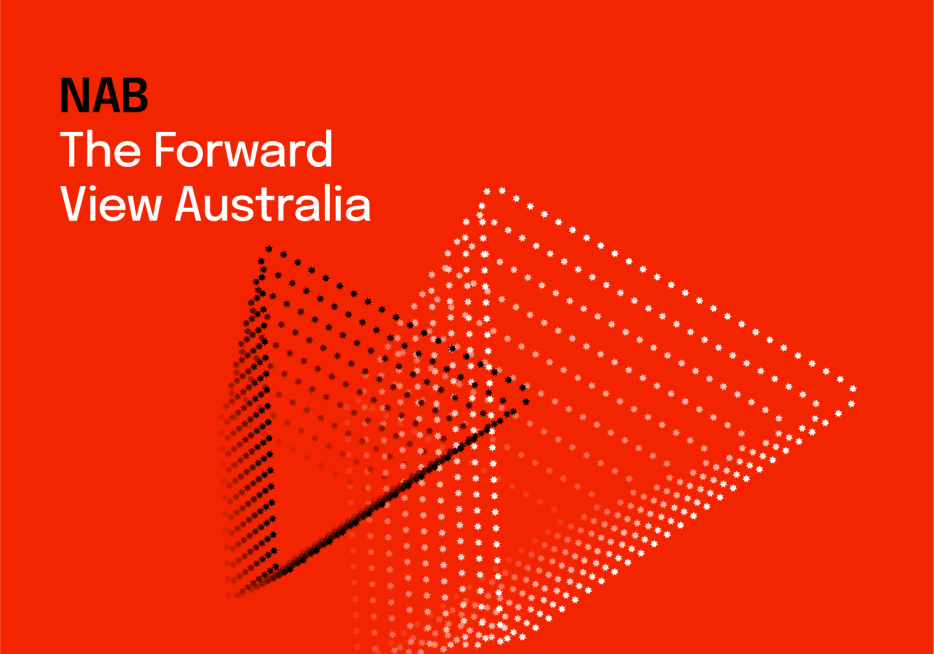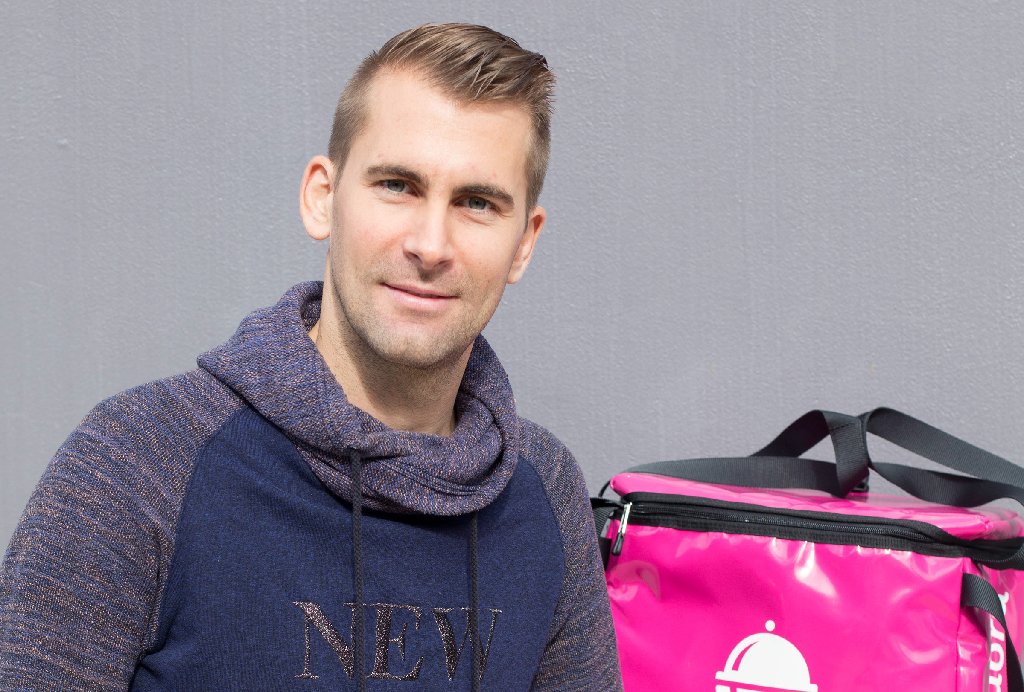Firmer consumer and steady outlook


Insight
As Australia embraces digital, the business services sector is booming. Nimble and tech-savvy service providers are helping businesses reach their customers by bridging the gaps.

As the distinction between the physical and digital worlds continues to blur, a new breed of business service provider is making a significant mark on the Australian corporate landscape as companies around the country strive to meet the needs of the 21st century customer.
A number of innovative Australian businesses are paving the way here as last-mile service providers – whether by helping manufacturers sell furniture online, enabling restaurants to home-deliver fine dining or equipping businesses to reach customers through virtual reality.
Rather than just shifting boxes or pumping data across the country and around the world, these last-mile service partners are redefining what service is. Instead of tackling individual pain points in service delivery, they’re building holistic platforms to handle every aspect of engaging and delighting the end customer. They’re finding success by truly understanding the needs of their business partners and delivering them cutting-edge services.
Having lived off takeaway pizza during late nights in the office, Toon Gyssels saw an opportunity for Australian restaurants to offer home delivery too – but they would need a business partner like foodora in order to deliver that experience.
Founded in Germany, foodora launched in Sydney in 2015 with the promise of 30-minute delivery with a flat $5 delivery rate. It has since expanded to cover Melbourne and Brisbane, catering to restaurants looking to offer quality meals, including catering for dinner parties and the romantic night in.
Acting as a last-mile service provider comes with its challenges when you’re working in a sector which traditionally hasn’t required a business partner in order to serve its customers. Working with food also demands higher levels of service than if you were simply moving parcels from door to door.
Changing the paradigm
While the first 50 restaurants took a long time to win over, foodora now partners with more than 1,000 across the country and deliveries are growing 35 per cent month on month. The company’s success required both restaurants and customers to change the way they think about home delivery, says Gyssels, foodora’s Co-Founder and Chief Executive Officer.
“When you talk about food delivery it usually has bad connotations, so a restaurant’s first response was often ‘Why would we want to look like a mediocre takeaway pizza shop?’ and you can’t blame them,” Gyssels says.
“Their biggest concern was how it reflected on their brand – including the quality of the experience that home delivery could provide and whether food would be transported the right way.”
Apart from the issue of reputation, restaurants have also traditionally avoided home delivery due to the complexities of managing it efficiently. This required foodora to sell both restaurants and their customers on the convenience of its delivery service.
Uber service
foodora’s platform consists of three main apps: one letting customers place orders, a second letting restaurants receive orders and a third letting drivers accept delivery jobs similar to the Uber model. Tackling a specialist sector like food delivery requires more than just technical know-how, so foodora also employs ex-chefs and others with first-hand experience in the hospitality industry.
“You absolutely need this kind of industry-specific expertise, in whatever field you tackle, otherwise many of your assumptions are going to be wrong,” Gyssels says.
“You might be smart and have a good idea that works in theory, but you still need to engage people who have experience at the front line.”
foodora’s value proposition for restaurants isn’t just outsourcing its home delivery service, it’s also maintaining an effective online presence including the complexities of search engine marketing and optimisation.
“We are bringing these restaurants fully into the online world,” Gyssels says. “A lot of them already have websites and some are really good at managing social media, but they still struggle when it comes to things like search engine marketing and optimisation. We have dedicated people to handle these at foodora to ensure potential customers find our restaurants.”
Regardless of the sector you operate in, anyone looking to tackle business services must consider scalability from the very beginning, Gyssels advises.
“You can’t just rely on simple spreadsheet calculations; scalability is about more than operations and processes,” he says.
“Your approach to scalability needs to be very practical and hands-on, thinking about how you’ll keep the business running smoothly once things take off and you’re ready to take it to the next level.”

Hall joined Zanui in 2012 with the aim of changing the way manufacturers approach retail, and helped establish an Australian online furniture and homewares superstore which today offers some 40,000 products across 500 brands. Now managing director, he says one of the biggest challenges in getting Zanui off the ground was convincing brands to diversify away from traditional bricks and mortar sales channels to the advantages of online.
“When we started, online furniture retail was still in its infancy and no-one was doing it to any sort of real scale,” Hall says. “We had to build up a critical mass of brands in order to make Zanui an attractive destination for online shoppers.”
“One of the early staff members we brought on was a buyer who had worked with one of the big retailers and was also interested in the shift towards online. A few people like that, who really know the industry, can save you from spinning your wheels – especially in the early days.”
While some furniture and homewares makers could already see the potential of online as a sales channel, others were apprehensive and concerned it would undermine business with their offline retail partners. The key to winning them over, Hall says, was positioning Zanui as a full-service retail partner rather than just simply an online shopfront.
“We work with a lot of suppliers, wholesalers and partners who have tried starting a website of their own, so they appreciate that there’s much more to it than simply getting up a few web pages,” Hall says.
“Search engine marketing and optimisation are a science in themselves, but even that’s only a small part of the total package.”
Zanui also handles logistics, arranges deliveries direct from the manufacturer to shoppers via an online portal open to suppliers, plus maintains its own warehouse – buying some brands into stock as well as offering a private label range of Zanui furniture. On top of this it takes care of customer service and post-sales support, such as dealing with delivery issues and returns.
Quality service key
The business has mapped out its entire process from a customer placing an order to the parcel arriving in their hands, Hall says, in order to offer a smooth customer experience. It also relies on a wide range of key performance indicators to keep its finger on the pulse and continually improve processes.
“Above all else, customer service is one area that we pride ourselves on,” Hall says.
“If customers have a bad experience with online purchases they’re very quick to write about it, whether it be on social media or on review websites.
“As an online business, we need to make sure that our customers – manufacturers and shoppers – have a fantastic experience because we’re in a very competitive market and it’s a key way to differentiate ourselves.”
Combining the talents of Hollywood with cutting-edge online video delivery, LENS Immersive ensures businesses don’t lose their way in the brave new world of virtual reality.
An explosion in budget headsets and 360-degree video cameras has significantly lowered the barrier to entry for businesses looking to employ virtual reality (VR) to reach customers. It’s tempting for businesses to jump in the deep end but, as with any content creation, success requires both the tools and the talent, says LENS Immersive Director of Content Travis Rice.
Two years ago Rice and fellow LENS Immersive co-founder Yan Chen saw an opportunity to help businesses deliver high-quality virtual reality experiences, from assisting with 360-degree video production to providing a secure and bandwidth-efficient content delivery platform. The key to serving these businesses is to truly understand what they and their customers need and value, Rice says, so you can become a valued partner rather than simply a basic service provider.
Service on steroids
“VR is an emerging field and we’re still doing lots of customer education,” Rice says. “Over time we’ve found more and more businesses are coming to us asking how they can save on bandwidth and deliver 4K content to users stuck on very low internet speeds, so that’s become our primary focus.
“They’re also looking for a secure way to deliver content and monetise it, so we’ve pivoted to address those needs and become a full virtual reality platform with a compression technology which allows them to offer a great VR experience over a slow internet connection.”
With a wide range of VR headsets hitting the market, LENS Immersive aims to be technology agnostic – educating businesses on the options at their disposal and helping them choose the best tools for the job.
Rather than just helping businesses create and deliver VR content, LENS Immersive also strives to ensure end users have a great experience so they’ll come back for more.
This includes addressing the issue of motion sickness which some people experience when watching some VR content. It’s a queasiness that’s often due to low-quality video, headsets or delivery methods, Rice says, which is where LENS Immersive’s production and delivery experience can make the difference.
Ahead of the curve
Delivering engaging virtual reality content is more than a technological challenge, and Rice and Chen call upon their own experience in artistic direction, curation, and movie and videogame production. LENS Immersive also works with film production teams and engages a wide range of content production advisors from around the world.
Building up this global network of advisory teams from day one has helped the business to think global – keeping its finger on the pulse of the industry, expanding into new territories and recognising the full value it can offer to customers, Rice says.
“This global network also helped us see the big picture and come to the early realisation that we’re an infrastructure company rather than just a content production company,” he says. “We aren’t just building a platform for delivery of video, we’re building core infrastructure for the next phase of the entire internet.
“Once you can see where you fit into the big picture it’s easier to spot the opportunities to meet a genuine need and become an important partner to your customers.”
© National Australia Bank Limited. ABN 12 004 044 937 AFSL and Australian Credit Licence 230686.